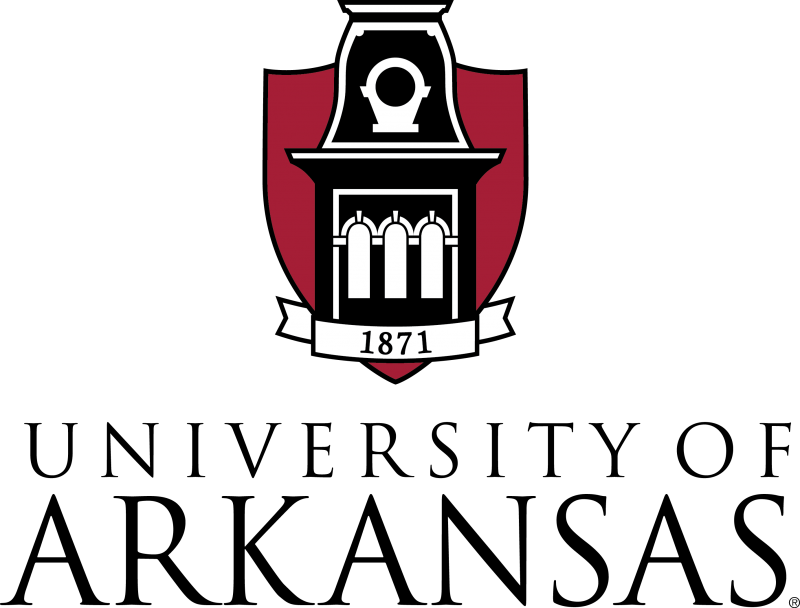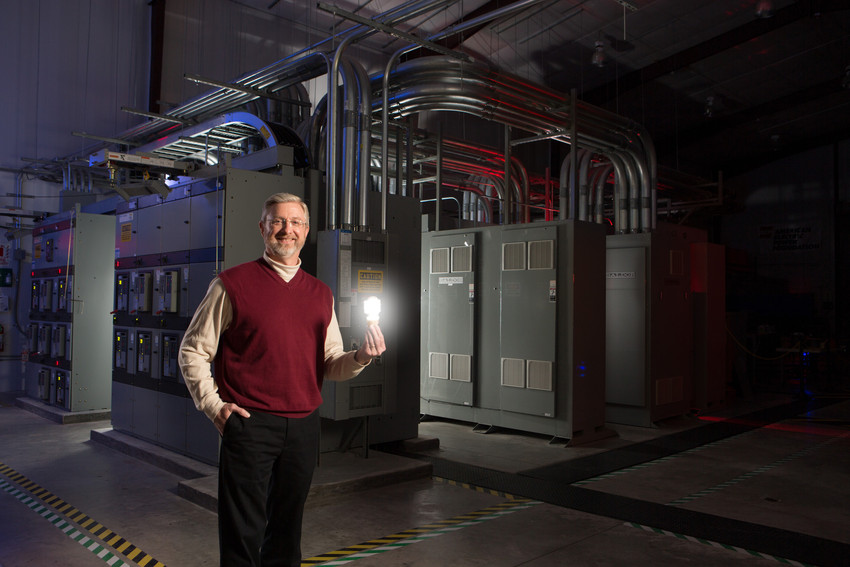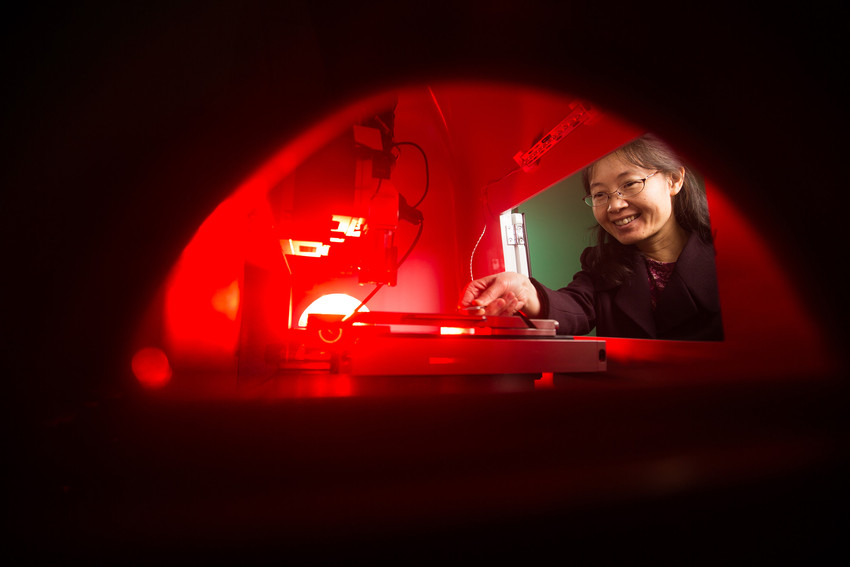Research centers support collaboration between researchers in different fields and connect faculty with industry. Centers allow researchers to tackle complex problems that couldn’t be solved without these connections.
Over the past year, four new centers have emerged with College of Engineering faculty in leadership roles. These centers are addressing everything from new kinds of materials to cybersecurity, but they are all working on projects that have the potential to change our lives for the better.
Center for Power Optimization of Electro-thermal Systems (POETS)
Electric vehicles may be the future of transportation, but only if they become more attractive to consumers than gaspowered vehicles. Researchers at the University of Arkansas play an important role in POETS, a new engineering research center to design and develop higher power density and higher efficiency power electronics for electric vehicles, heavy equipment, airplanes, trains and ships. Researchers will focus on improving current thermal and electrical limits in vehicle designs to make them more fuel efficient and expand their range.
Working with partners from around the world, POETS researchers will build new technologies such as threedimensional thermal circuitry for cooling, next-generation power converters, and algorithms for coordinating the technologies automatically. They’ll look at those technologies from the microchip level all the way up to the entire vehicle.
POETS is supported by an Engineering Research Center award from the National Science Foundation, which is the NSF’s most prestigious award, totaling nearly $40 million over 10 years. The POETS team was one of three selected for the award in 2015 out of almost 200 proposals. Alan Mantooth, Ph.D., Distinguished Professor of electrical engineering at U of A and holder of the Twenty-First Century Research Leadership Chair, will serve as deputy director of the research center. Andrew Alleyne, Ph.D., professor of mechanical engineering at the University of Illinois at Urbana-Champaign will serve as director. Howard University and Stanford University are also partner institutions.
Cybersecurity Center for Secure Evolvable Energy Delivery Systems (SEEDS)
We rely on the power grid every day, but this vast and complicated system is vulnerable to cyber threats. The goal of SEEDS is to protect the hardware and software that is vital to energy delivery for electricity, oil and natural gas; make the digital systems behind these systems less susceptible to cyberattack; and to provide reliable delivery of energy if such an attack were to occur.
In order to protect our energy delivery systems, SEEDS researchers are working on algorithms for software modules that can be incorporated into equipment such as fault-current limiters, breakers, measurement units, relays, wireless communications systems and power-line communications.
The center is made possible by a $12.2 million grant from the U.S. Department of Energy, augmented by $3.3 million in matching funds from the research partners. In addition to the U of A researchers, all of whom are associated with the university’s National Center for Reliable Electric Power Transmission (NCREPT), the new cybersecurity research center includes faculty from the University of Arkansas at Little Rock, Carnegie Mellon University, Florida International University and Lehigh University. Arkansas Electric Cooperative Corporation, a Little Rock-based generation and transmission cooperative, will serve as an industry partner.
Mantooth will also serve as executive director of the SEEDS research center. SEEDS and POETS join the existing NSF Center on GRid-connected Advanced Power Electronic Systems (GRAPES) to create a powerful research ensemble in the area of power electronics for energy, security and transportation.
Center for Advanced Surface Engineering (CASE)
Technological breakthroughs in mechanical and surface engineering are leading to the creation of completely new products and materials, and to improvements in products we use every day. A new statewide center focused on advanced surface engineering is bringing together top researchers in this field and connecting them with industry and education in the state to ensure that Arkansas can make the most of these breakthroughs.
Researchers at CASE will partner with Arkansas industries to create new products for use in manufacturing, aerospace and defense, agriculture, forestry, oil and gas, food packaging and health care. The center includes four interdisciplinary research teams made up of about 40 faculty members from 10 Arkansas institutions. CASE will also work with industry leaders to develop internships and seminars for Arkansas students.
Plans also include establishing start-up companies to commercialize technologies developed by the center, creating new products and new jobs to bolster the knowledge-based economy in Arkansas while also creating a workforce with the specialized skill-sets necessary to sustain industries that can utilize the center’s research. Center researchers and laboratories will mentor students from high school through graduate school in an integrated science, technology, engineering and mathematics pipeline that feeds directly into the center and out to industry.
CASE is supported with a $20 million grant from the National Science Foundation through its Experimental Program to Stimulate Competitive Research (EPSCoR). Min Zou, Ph.D., who holds the endowed Twenty-First Century Professorship in Mechanical Engineering, will serve as the center’s director.
Arkansas Security Research and Education Institute (ASCENT)
It is easier than ever to take advantage of digital technology. Smart devices, the cloud and big data processing techniques provide new opportunities for businesses, governments and other organizations. These new tools all come with additional security risks, however. This new center focuses on spreading security expertise across several different fields.
Researchers at ASCENT focus on four areas, and they plan to connect researchers and industry partners in these areas in order to develop security solutions. In the area of cybersecurity, the center takes advantage of the expertise of the U of A’s cyber talent and local industry. In the transportation area, the center hopes to find ways to make supply chain logistics more efficient, while protecting the proprietary information of companies involved. The critical infrastructure area focuses on the digital infrastructure underlying the services we use every day, such as banks, power systems and the internet. This area also looks at future security risks associated with the emerging Internet of Things. Finally, ASCENT plans to focus on our food supply and water supply, finding ways to make sure these remain safe and plentiful.
The director of ASCENT is Jia Di, Ph.D., professor of computer science and computer engineering and holder of the Twenty-First Century Research Leadership Chair. The three co-directors are Chase Rainwater, Ph.D., associate professor of industrial engineering, Dale Thompson, Ph.D., associate professor of computer science and computer engineering, and Steve Ricke, Ph.D., director of the Center for Food Safety of the Arkansas Division of Agriculture.


